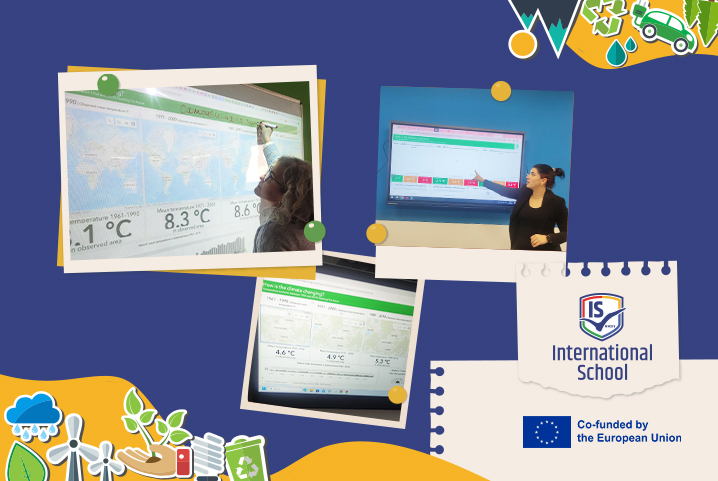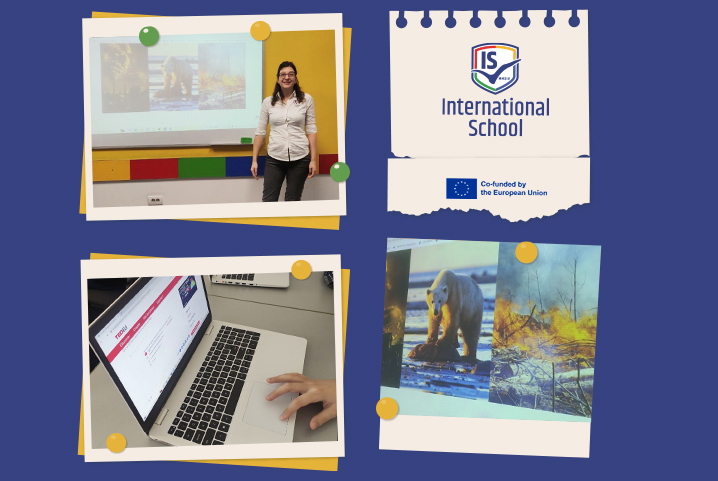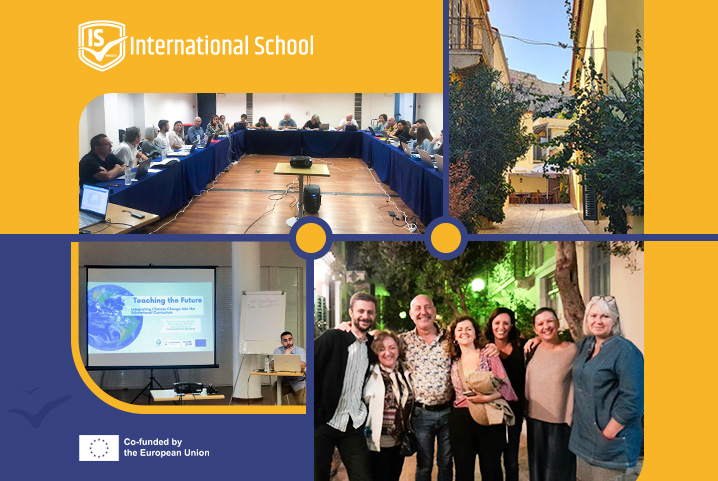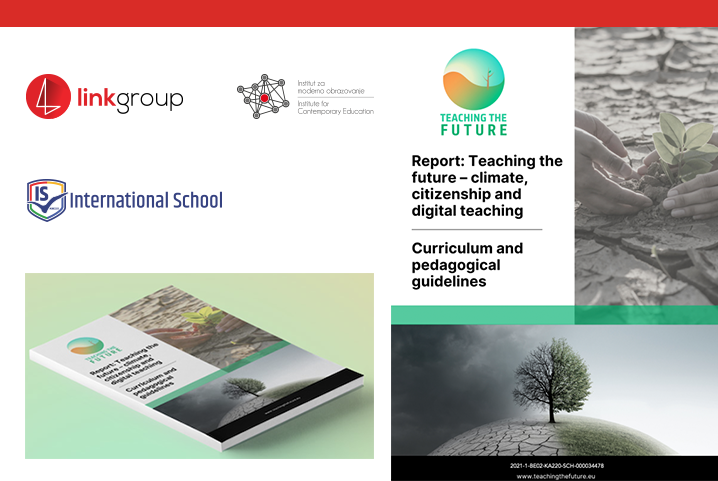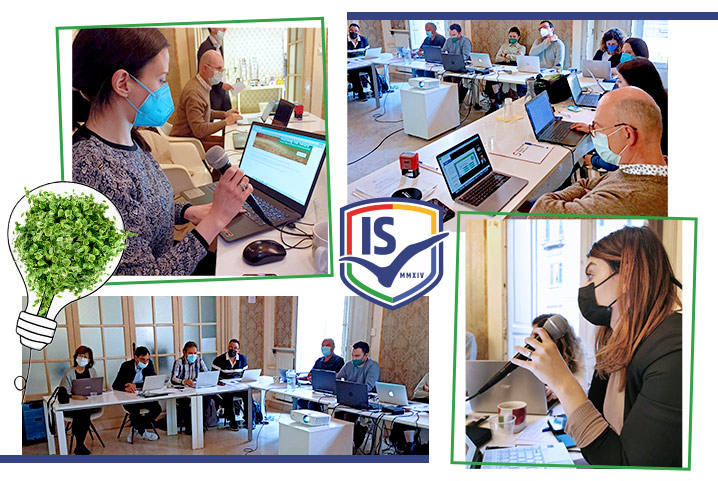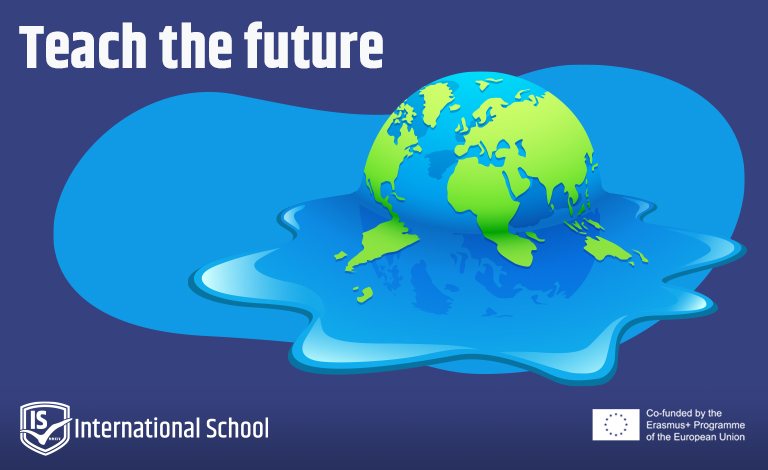International School is a school dedicated to social engagement, which is obvious from the international projects in which it participates. One of the important projects where International School students demonstrate a high level of social consciousness is certainly the Teach the Future project.
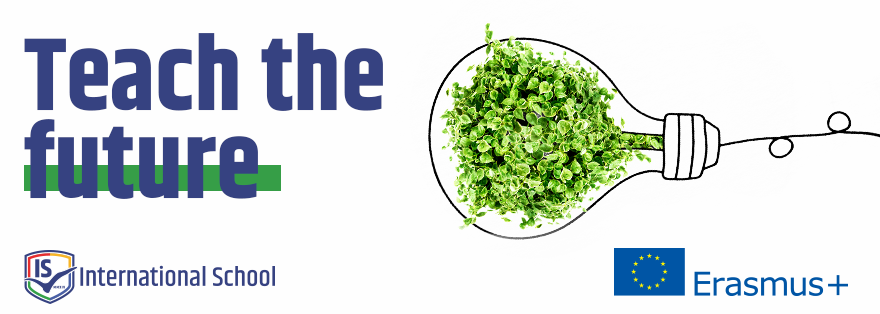
Even before we could all notice the consequences of climate change, EU politics recognized this burning issue, and we all know that problems are solved through adequate education. For this reason, the European Commission introduced the Education for Climate Coalition as the leading initiative for tackling climate change in partnership with education.
What kind of project is it?
The Teach the Future project is based on the abovementioned initiative of the European Union, Education for Climate Coalition, launched with a view to raising awareness of environmental issues and climate change through education.
In an attempt to incorporate climate change education and environmental education into traditional education together, we conceived this project with the following aims in mind:
- Assessing the curriculums and needs of schools, so as to determine where we can include this kind of content;
- Providing teachers with quality resources containing information on the aforesaid problems and teacher training for effective classes;
- Motivating students and parents to participate in problem solving by applying an innovative approach to education;
- Promoting an interdisciplinary approach to learning and enhancing digital skills by encouraging young people to learn about science and technology, and to partake in citizens’ initiatives in their local community, in order to take responsibility for their own actions and behavior.
Phases of the Teach the Future project
Phase 1: Informed by an analysis of teachers innovative teaching and learning approaches for climate education will be identified and developed. Interviews with climate scientists
will help partners identify key messages and important resources/tools for teaching.
Phase 2: A climate education data dashboard (Result 2) will be produced that brings the most useful open data, visualisations and examples to classes, with relevant information and news on actions being taken. The tool will be designed to be accessible / available for multi-platforms: computer – laptop – tablet – smartphone.
Phase 3: Creating a teacher training course to support and enable iinnovative approaches to climate education, tested in schools.
Phase 4: Concerns finalising the results, gathering examples of teaching activities and learning outcomes which will then be presenting through Storymaps (https://storymaps.arcgis.com/) for use to assist widespread promotion of the project.
Teach The Future (TTF) is designed to promote a highly relevant educational approach to climate change education, by applying open science and open data principles to the framework of a digital citizenship educational paradigm.
The expected results are:
- An analysis of curriculum across partners and the potential for teaching the future, climate education and using open data (R1);
- An online climate data dashboard (R2), as a teaching resource targeted at teachers. This gathers climate data and scientific information which can be used by schools to support learning and teaching climate in schools. It will provide opportunities in and beyond the classroom, developed from an analysis of the resources and opportunities available;
- An online teacher training course (R3), focused on teaching about climate change and including suggestions on how to embed climate education in different subjects, using scientific data and encouraging pupil engagement and active citizenship in local issues, for instance through citizen science approaches.
Overall, this will lead to:
- The provision of new resources and skills enabling teachers to effectively teach climate education to secondary school students;
- Strengthened students’ and teachers’ scientific engagement in climate issues, involving innovative approaches like citizen science;
- Increasing the ability of young people to work with and appreciate digital scientific data;
- Enhanced interdisciplinary learning and digital skills among young people, raising their interest in science, technology and active citizenship.


